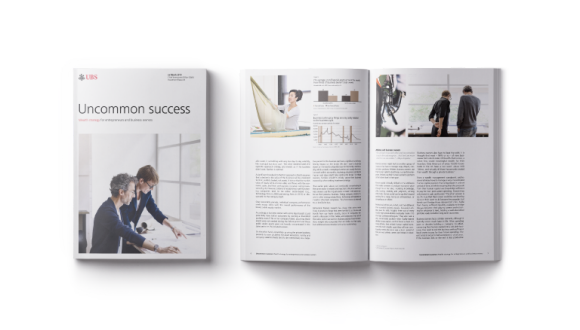Life after business
Life after selling your business can be as daunting as it is exciting. Learn more about the challenges and potential solutions.

![]()
header.search.error
Life after selling your business can be as daunting as it is exciting. Learn more about the challenges and potential solutions.

Life after selling your business can be as daunting as it is exciting. Families need to transition from thinking like business owners to thinking like long-term asset managers. Along with that transition comes a number of potential challenges. Two are investment specific: 1) selecting a prudent, sustainable asset allocation that best meets the family’s needs; and 2) timing the implementation in a responsible way.
Many business owners don't need to invest their assets. They could hold them in cash and never run out of money during their lifetimes. Although the current generation may be fine with an all-cash strategy, it reduces the likelihood the fortune will be sustained over multiple generations, and unexpected high inflation presents a specific risk.
Many wealthy families could also invest all their assets in listed equities and, even with a 50% drawdown, still be okay. An all-equity strategy offers more upside than an all-cash one, though it also runs the risk of a severe bear market markedly impairing the family's net worth. History provides examples of once-dynastic wealth depleted in just a few generations by the combined effects of high spending, budgetary inflexibility and one or more bear markets. It suggests that the optimal portfolio allocation lies somewhere between all-cash and all-equity. A dynamic balance of stability and growth is necessary.

After a sale of their business, families can find that balance by continuing to use the Liquidity. Longevity. Legacy. framework to develop an asset allocation strategy suited to their needs and objectives. The overall sizing of it determines the top-level asset allocation, taking into account the various, and sometimes conflicting, objectives of income, long-term growth and multi-generational sustainability.
The exit itself can be seen as a swap out of the business position into liquid assets, which 1) fulfills the Longevity target value to provide for the living expenses of the family; and 2) often results in some of the Legacy assets being used by the family for gifting or philanthropic purposes.
We'll end where we began:
No matter where you are at in your life, whether starting, running, selling or retired from a business, financial decision-making starts with the answers to these questions. You can't plan and invest appropriately without knowing what you want to achieve.
Connect with a UBS Financial Advisor
Learn what to consider before, during and after selling your business.

Your ultimate guide to selling your business.
Download your free copy of the full report